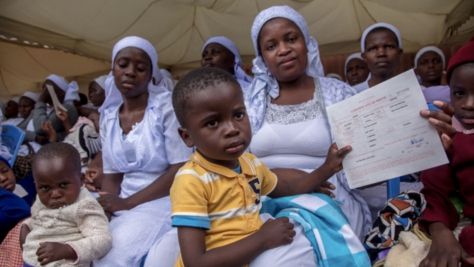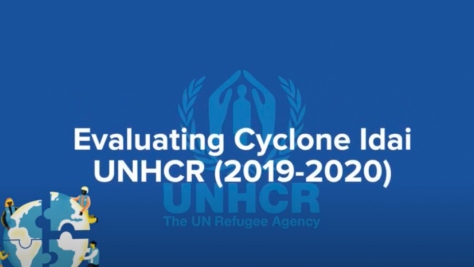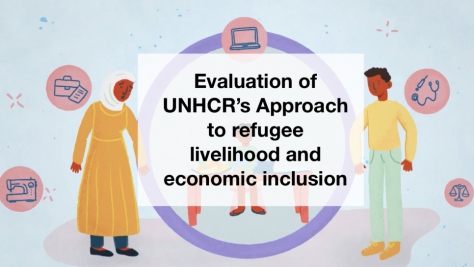Evaluation Service
What's new: reports, news and publications
Evaluation of UNHCR-led initiatives to end statelessness
UNHCR's mandate to address statelessness has evolved significantly since 1951 from holding responsibilities for stateless refugees only, to identifying and protecting non-refugee stateless people, and preventing and reducing statelessness in itself.
UNHCR Must Further Invest in Strengthening its Cooperation with the Development Partners
Over the past five years, UNHCR's engagement in humanitarian-development cooperation has increased with a positive effect on refugees and host communities. To continue to build on the success, UNHCR needs to further adapt its work and strengthen investments in this area.
Emerging Findings from the Joint Evaluation of the Protection of the Rights of Refugees during COVID-19
The COVID-19 pandemic has exacerbated the pre-existing protection risks for refugees and host communities and challenged the protection of their fundamental rights.
2021 was a challenging yet productive year for the Evaluation Service. This year-end report illustrates the progress that we have made towards our strategic goals outlined in the 2018-2022 Evaluation Strategy.
In 2021, we completed 13 independent evaluative exercises and initiated another 23 - each aligned with the organization's strategic priority areas. As we go forward, we will continue to improve in order to encourage a better future for the UNHCR and the people we serve.
Peer Review of UNHCR's evaluation function
See here the Management Response to the Peer Review of the Evaluation Function at UNHCR.
What we do
UNHCR's Evaluation Service provides evaluative evidence so we can obtain an impartial reflection on our performance and results, generate lessons from experience and find ways to improve. The overall purpose of any evaluation is to contribute to both learning and accountability and inform our strategic choices.
With our evaluations, we seek answers to questions such as: Have the right things been undertaken? Are we doing them on a scale that will make a difference in the lives of persons of concern? How well have things been done and how do we know this? What results have been achieved? Are there better ways of achieving them? To what extent can a certain result be attributed to a specific intervention?
The Evaluation Service is independent of the management functions and reports directly to the High Commissioner.
How we work
All evaluations are conducted as a partnership between the UNHCR Evaluation Service and the concerned Bureau, Office and/or Division, who play a critical role in a successful evaluation process. Evaluations are scoped and defined jointly between the Evaluation Service and concerned Bureaux, Divisions and country offices, and need to be carried out by external consultants. UNHCR Staff with specific thematic and operational expertise may join an evaluation team in an advisory capacity, to give technical advice and/or quality assurance.
Evaluations can broadly be classified into two categories:
- Centralized evaluations: commissioned, funded and managed by the Evaluation Service. Senior Executive Team members will be requested to oversee the management response to the evaluation.
- Decentralized evaluations: proposed and initiated by offices, bureaux and divisions; co-managed with the Evaluation Service; can be undertaken jointly with partners. Concerned representative/bureau/division directors will prepare management responses.
How are evaluation topics selected?
The Evaluation Service facilitates an annual process of consultation with headquarters and field-based colleagues to develop an annual work-plan. Whereas topics for centralized evaluations are set at the beginning of each year, suggestions for decentralized evaluation topics (put forward by bureaux, operations or divisions) can be shared with the Evaluation Service throughout the year.
Other evaluations and reports
Other reviews and briefs
- COVID-19 Evaluative Evidence Brief No. 2
- COVID-19 Evaluative Evidence Brief No. 1
- UNHCR's approach to evaluating the COVID-19 response for refugees and other persons of concern
- Evaluation Brief - Synthesis of evidence from evaluations of UNHCR's cash-based interventions
- Evaluation Brief – COVID–19
UNHCR's Evaluation Policy and Strategy
Evaluation Service Work Programme
- Decentralized Workplan 22/23
- Centralized Workplan 2022/23
- Centralized Workplan 2021/22 Mid-year Update
- Decentralized Workplan 2021/22 Mid-year Update
View the full list here
Contact us at [email protected]









